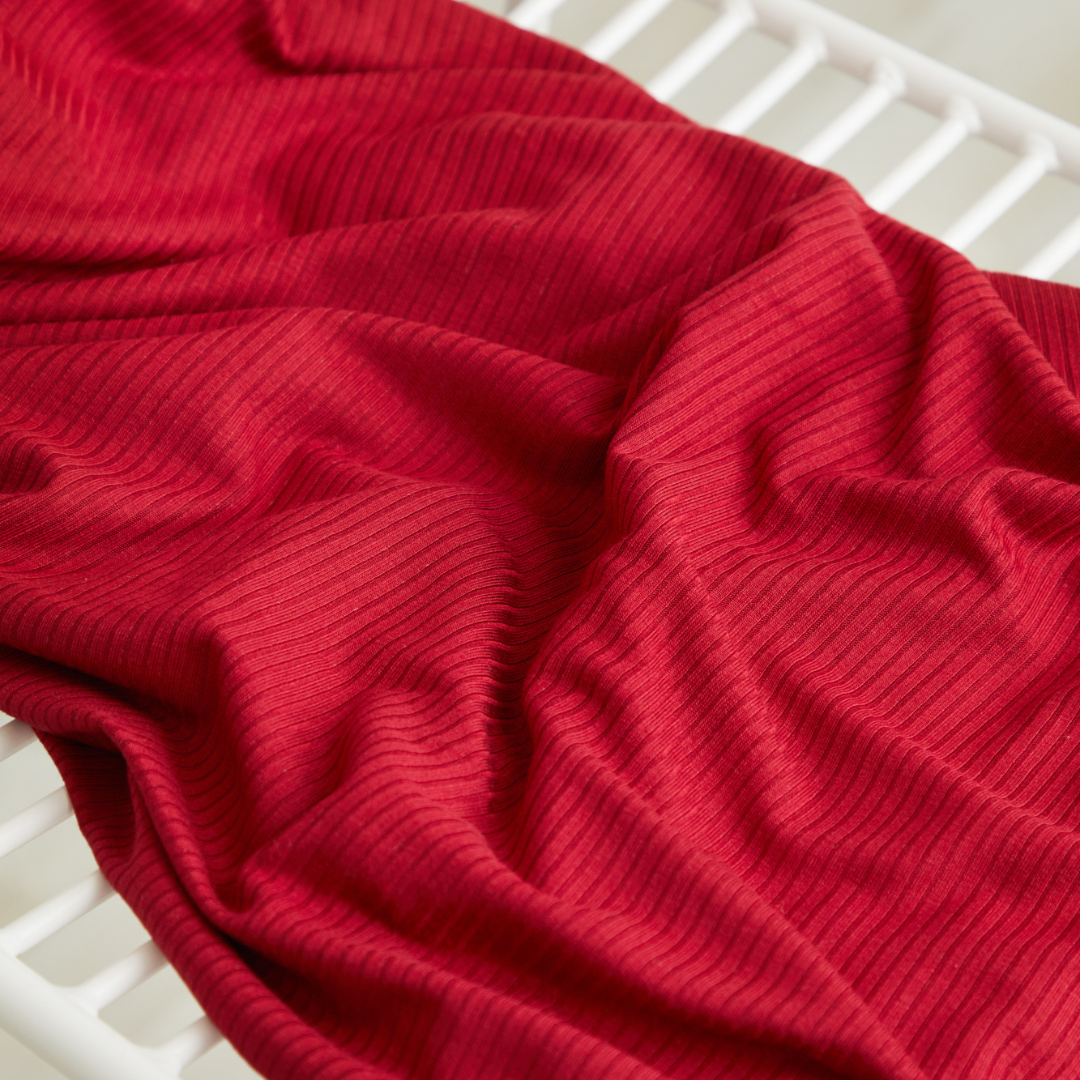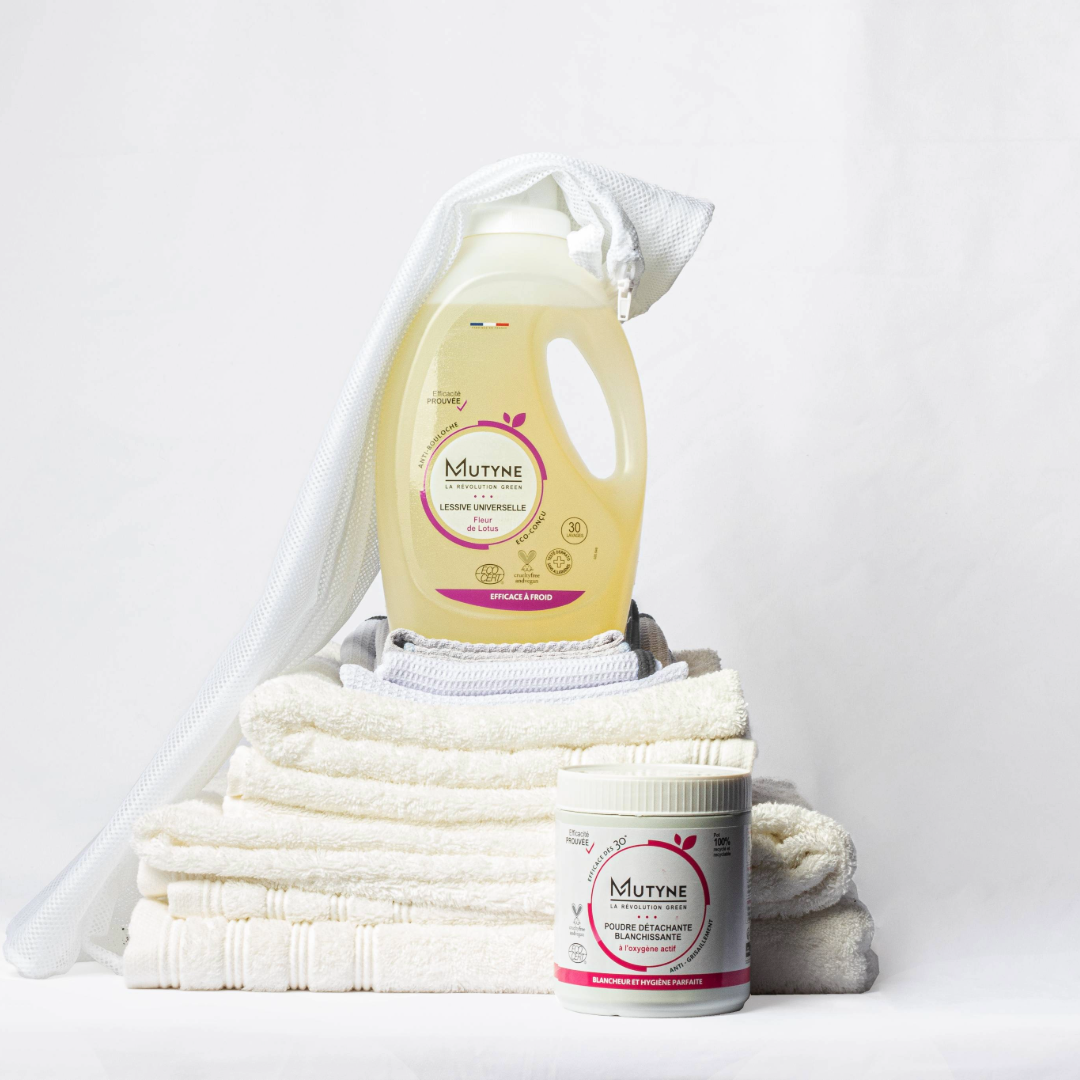What you need to know about Tencel®: this ecological and innovative material
Tencel ® , also known as Lyocell, is an innovative textile fiber made from wood pulp, mainly eucalyptus, in the textile world that stands out for its ecological manufacturing and exceptional properties. Extremely soft, comfortable, breathable and effective in absorbing moisture, Tencel stands out as a sustainable alternative to traditional cotton .
This guide helps you discover this treasure, and explores this revolutionary material in depth, from its origins to its benefits, applications and care, to help you understand why Tencel® is a must-have option in sustainable fashion.
What is this material: Tencel®?
Tencel ® or lyocell, is a textile fiber made primarily from wood pulp, such as eucalyptus, beech, or birch. Known for its silk-like softness and durability , Tencel ® is an eco-friendly alternative to traditional synthetic and natural fibers, such as cotton. Its growing popularity in the fashion industry is due to its unique properties that combine comfort, quality, and environmental friendliness.
Origin and Manufacture of Tencel®
Wood pulp as raw material
Tencel ® is a fabric made from wood pulp from sustainably managed forests. The trees used are mainly eucalyptus, beech and birch, which are selected for their fast growth and low environmental impact , unlike cotton. The wood pulp is transformed into fibers through an innovative process that minimizes the use of resources and chemicals.
The ecological manufacturing process
The manufacturing process of Tencel® is particularly environmentally friendly , much more so than cotton. The wood pulp is dissolved in a non-toxic solvent, N-Methylmorpholine N-oxide (NMMO), which is 99% recycled during the process. This closed-loop process reduces waste, product usage and minimises the ecological impact of production , unlike the management and production of many other textile fibres, such as cotton for example.
Advantages of Tencel® over Other Fibers
Softness and comfort for the skin
Tencel® fabric is renowned for its exceptional quality and softness , often compared to silk . Discovering its soft, qualitative and pleasant texture makes it a number one and preferred choice for luxury clothing and underwear. Its ability to drape elegantly and its silky touch make it a highly sought-after quality material.
Breathability and moisture management
Beyond its eco-friendliness, one of Tencel’s most appreciated special features is its breathability and moisture management. Tencel® fiber is highly absorbent, which helps regulate body temperature and wick away moisture, providing optimal comfort in a variety of weather conditions. This trait is particularly beneficial for products such as sportswear, bedding, daywear, and underwear, unlike cotton.
Reduced environmental impact
Tencel® has a much lower environmental impact than synthetic fibre products or natural materials such as cotton. Its management and production uses less water and energy than cotton , and the fact that the solvent used is almost 100% recyclable significantly reduces waste and pollution.
Uses of Tencel® in the fashion industry
Tencel® clothing and accessories
Tencel® fabric is used in a variety of products: clothing, accessories, (...) ranging from bodywear (like the Solis top , Céline and Héloïse bodysuits , Sereia skirts ,...) to accessories. Its silk-like softness and elegance make it an ideal choice for garments that require both comfort and sophistication. In addition, it retains its shape and color well, even after multiple washes.
Use in household linen
Tencel ® is used for household linens, such as sheets, pillowcases and towels, as it benefits from the absorbent and moisture-regulating properties of the fiber. These products provide a feeling of freshness and comfort, improving the quality of sleep and the overall experience of relaxation.
Maintenance and Durability of Tencel®
Tips for maintaining Tencel®
Tencel ® fabric is easy to care for and can often be machine washed: we recommend a low temperature wash program (30°C) or hand wash, provided you do not wring the textile, as this could damage the natural fibers. It is recommended to air dry them, without product, to preserve their texture and shape. Tencel ® is also crease resistant , which reduces the need for ironing.
Durability compared to other textiles
In terms of durability, Tencel ® is comparable to cotton and wool, but it surpasses synthetic materials such as polyester in terms of comfort and environmental friendliness. Its resistance to wear and its ability to retain its shape make Tencel ® a sustainable choice for clothing and home linens.
Conclusion: The future of Tencel in sustainable fashion
Tencel® fabric represents the future of sustainable fashion with its eco-friendly qualities , unmatched comfort and versatility . As more consumers turn to environmentally friendly products, Tencel® is positioned as a premium option for those seeking both style and responsibility. Its ability to meet sustainability requirements while providing a luxurious experience makes Tencel® an innovative and essential fiber in the modern textile industry.
If you too want to adopt this incredible material for your health, your comfort and the planet, discover our collection of Bodywear products here (all our materials are Oeko-tex standard 100 certified , without PFA or metallic nanoparticles)




